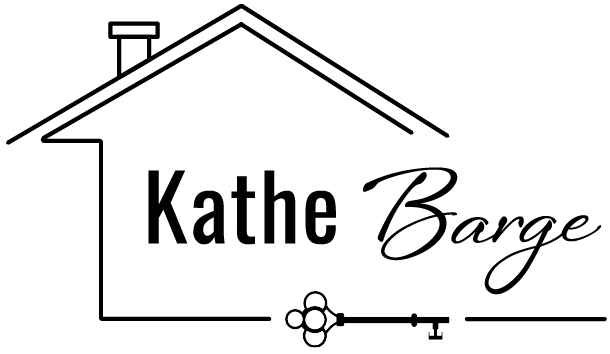
by Kathe Barge | Dec 16, 2025 | Blog, Buyers, Buying Conditions, Contracts, Downsizing, Helpful Tips, Interest Rates, Listings, Market Trends, Real Estate, Sellers, Selling Conditions
December is not when most people act in real estate — but it is when the smartest decisions are made.
When the market slows, pressure drops. That creates the right conditions to plan properly, rather than react quickly. For homeowners wondering when to start planning a sale or how early is too early, December is often the most overlooked — and most effective — time to begin.
Here is what December is actually good for:
First, deciding whether selling actually makes sense.
Before talking about price or timing, this is the moment to step back and ask the harder question: Should you sell at all? That includes reviewing lifestyle needs, carrying costs, tax considerations, and what you realistically want next. This is not a spring conversation. It’s a thinking conversation — and it should happen before any commitment to timing.
Second, assessing your home’s condition honestly.
December is the right time to evaluate condition without the pressure of an imminent listing. What is cosmetic versus functional? What will a buyer notice immediately, and what truly does not matter? This is when we decide what to fix, what to leave alone, and what simply needs to be disclosed — calmly and strategically.
Third, sequencing the work — if any.
Rushed preparation is expensive preparation. December allows us to prioritize correctly, line up contractors if needed, and avoid unnecessary projects that don’t change outcome or value. Good sequencing almost always saves money and reduces stress later.
Fourth, deciding the right timing to sell — not guessing.
Rather than defaulting to “spring,” December planning lets us decide why and when to come to market based on your goals, not the calendar. Some homes benefit from waiting. Others don’t. That decision should be intentional, not assumed.
By the time spring arrives, the best outcomes usually belong to homeowners who did their thinking early — not those scrambling to catch up. In real estate, the best time to make decisions is rarely when everyone else is rushing.
If a move is on your horizon, December is a good time for a quiet planning conversation.

by Kathe Barge | Mar 18, 2025 | Buyers, Buying Conditions, Contracts, Interest Rates, Investment Properties, Market Trends
Should You Buy a Second Home or Rent One?
A second home is more than just a getaway—it’s an investment in your lifestyle and your future. Whether it’s a beach house, a ski chalet, or a serene retreat in the countryside, owning a second home provides a level of comfort, consistency, and long-term financial benefits that renting simply can’t match.
One of the biggest advantages of buying a second home is the ability to create a space that truly feels like yours. Unlike a rental, where you’re at the mercy of availability, price fluctuations, and ever-changing policies, ownership gives you stability. You never have to worry about booking your favorite place months in advance, finding out it’s unavailable during peak season, or dealing with rising rental costs. Instead, your second home is always waiting for you—perfectly set up with your belongings, personalized to your taste, and ready whenever you need an escape.
Financially, purchasing a second home allows you to build equity rather than spending money on temporary stays with no return. Over time, many second-home markets have shown strong appreciation, turning a lifestyle purchase into a smart long-term investment. Instead of pouring money into short-term rentals, you’re putting it toward an asset that can grow in value and potentially generate income if you choose to rent it out when you’re not using it. While rental management requires some planning, the right property in the right market can significantly offset ownership costs.
Beyond financial benefits, owning a second home opens the door to a deeper connection with a community. Instead of being a visitor, you become part of a neighborhood, forming lasting relationships and truly getting to know the area. Whether it’s a favorite café where they know your order, a group of neighbors who become lifelong friends, or simply the joy of returning to a place that feels like home, these are experiences renting can’t offer.
Of course, buying a second home is a big decision, and choosing the right location, property, and market conditions is key. That’s where working with a knowledgeable real estate professional makes all the difference. Through the Sotheby’s International Realty network, I can connect you with the very best agent in any destination, whether you’re looking for a mountain retreat in Aspen, a beachside villa in the Carolinas, or a vineyard estate in Napa. With access to unparalleled local expertise and the world’s most exclusive properties, we can find the perfect second home to fit your lifestyle and goals.
Thinking about making your second home a reality? Let’s talk—I’d love to help!

by Kathe Barge | Jan 27, 2025 | Buyers, Buying Conditions, Interest Rates, Market Trends, Pittsburgh, Property Updates, Property Value, Real Estate, Sellers, Selling Conditions
How is the housing market doing?
The housing market showed some spark in December, with home sales ticking up 2% from November—making it three months in a row of growth! Even better, sales were 9% higher than last December, a big improvement after a long slump.
Inventory is still tight, which means home prices stayed high. The median price hit $404,100, up 6% from last year. Demand is being fueled by a strong job market—employers added over 250,000 jobs in December, the biggest boost since March!
Regionally, sales were up almost everywhere: 4% in the Northeast, 3% in the South and West, but down slightly (1%) in the Midwest. Both single-family homes and condos saw a solid bump in sales. Multifamily properties, which have struggled for years, finally saw an uptick too.
What’s ahead? With interest rates starting to ease and the economy holding steady, 2025 is shaping up to be a better year for buyers and sellers alike.
Got questions about the market or your plans? Let’s talk!

by Kathe Barge | Aug 6, 2024 | Buyers, Buying Conditions, Contracts, Helpful Tips, Inspections, Interest Rates, Listings, Market Trends, Mortgage
We’re first-time home buyers. Where do we begin? (Part 4 of 4 – Last Chapter)
As you approach the final stretch of your home buying journey, it’s time to focus on the crucial steps that will bring you to the finish line. After months of searching, negotiating, and securing financing, you’ll need to ensure that all remaining documents are in order for your lender. This might include providing the latest pay stubs, bank statements, or any other documentation that the lender requires to finalize your mortgage. Additionally, securing homeowners insurance is a critical step that must be completed before closing. Start shopping for insurance early to compare coverage options and rates, ensuring that your new home is well-protected from the start. It’s also time to turn your attention to connecting utilities. Contact your local utility providers—such as electricity, gas, water, internet, and waste management—to set up new accounts and arrange for service activation.
Finally, as the closing date approaches, conduct a final walkthrough of the property, usually a day or two before closing. This walkthrough is your opportunity to verify that the property is in the condition agreed upon and that any repairs negotiated in the contract have been completed. Carefully inspect each room, test appliances, and ensure that everything is functioning as expected. If any issues arise, discuss them with your real estate agent immediately. On closing day, be prepared with a driver’s license or passport. Once everything is signed and the closing costs are paid, you’ll receive the keys to your new home, marking the completion of your journey and the beginning of a new chapter in your life. Congratulations on becoming a homeowner!

by Kathe Barge | Jul 22, 2024 | Buyers, Buying Conditions, Contracts, Helpful Tips, Interest Rates, Listings, Market Trends, Mortgage, Property Updates, Property Value
We’re first time home buyers. Where do we begin? (Part 3)
If you are following along, so far you have gotten pre-approved for your mortgage, researched and chosen a buyer’s agent to be your advocate, saved money for your down payment, shopped for a home and gotten one under agreement. Now the fun continues!
Once you have a home under agreement and have deposited your hand money, you will be ready to schedule your inspections. Your buyer’s agent should provide you with guidance in finding reputable home inspectors. You will want to consider scheduling a general home inspection as well as inspections for radon, wood boring insects (termites), mold, and possibly sewer lines, septic systems and wells. You generally have 10 – 14 days to complete your inspections. At the end of that period, you will need to make a request of the seller if you would like any items addressed. To reach a successful conclusion of negotiations, keep some simple tips in mind. First, you should have considered anything on the disclosure when you were making the offer – its not a great idea to revisit disclosed items. The same can be said for items you could have easily seen. If the inspector notes that the driveway is cracked and you should have seen it while visiting the home, asking for the seller to pay for a new driveway will also not be well received. So, when deciding what, if anything, to request of the seller, eliminate disclosed items and things you noticed when visiting the home and then turn your focus to the items that concern you most. Of course, if there were multiple offers and you were the winner in a bidding war, you may not be able to ask for much if anything as there is likely another buyer on standby! Ultimately, you and your seller will need to reach a compromise on the inspection issues and that agreement will be formalized in a written addendum to your Agreement of Sale.
At the same time you are working through inspections, you will also need to make application for your financing. This must be complete (in other words, you must have all of your paperwork to your lender) within 7 days of the final Agreement of Sale. Applying for a mortgage these days can seem quite challenging – be prepared for the lender to ask for what will seem like a mountain of documents. And do NOT make any major purchase until after you close on your home – changes to your outstanding debt at this point could affect your ability to qualify for a loan at all! Once you get through inspections and mortgage application, it should be smooth sailing. We will cover the final step in the process next time!
taking-the-first-steps-part-one
taking-the-steps-part-two

by Kathe Barge | Jul 3, 2024 | Buyers, Buying Conditions, Contracts, Helpful Tips, Inspections, Interest Rates, Listings, Market Trends, Mortgage, Property Value, Real Estate
We’re first time home buyers. Where do we begin? (Part 2)
For those of who just picking up the conversation today, check out Part One to read my introduction to the home buying process. If you are following along, so far you have gotten pre-approved for your mortgage, researched and chosen a buyer’s agent to be your advocate, and hopefully saved money for your down payment. Now the fun begins!
Once you are pre-approved for a loan and have determined what price range you are comfortable shopping in, you can start your home search. Typically, this begins with an online search – your buyer’s agent should set you up to receive new properties as they become available. As interesting homes come on the market, you will want to tour them immediately. In most price ranges, we have an extreme shortage of inventory and those who snooze tend to lose. It is important to have seen enough properties upfront so that when you see the right one, you know it and are ready to make a move. When evaluating homes, it is also important to be realistic. There is no perfect home, so establish your list of criteria upfront. If a home achieves 7 out of 10 wish list items, in real estate we call that a home run. If you are going to hold out for all 10, a move is probably not in the cards for you in the short run.
Once you find a home that works for you, in this market you do need to anticipate a bidding war is a realistic possibility. Interestingly, even homes that have sat on the market for seemingly prolonged periods of time will often receive multiple offers, so do not delay in making an offer if you like a home. If there are multiple offers, do not assume you will get a second chance – work with your buyers offer to make the highest, “cleanest” offer that you can out of the gate.
Once you have a home under agreement and have deposited your hand money (anticipate 1%-5% of your purchase price depending on your price range), you will be ready to schedule your inspections. Next week I will talk more about inspections and how to get through them!
taking-the-first-steps-part-one
taking-the-first-steps-part-three

by Kathe Barge | Jun 26, 2024 | Blog, Buyers, Buying Conditions, Contracts, Helpful Tips, Interest Rates, Listings, Market Trends, Mortgage, Property Value
We’re first time home buyers – where do we begin?
Buying a home is one of the best choices you can make. Rather than paying money to your landlord so that he can be closer to owning an asset outright each month, when you make your monthly payment each month a portion actually goes to your benefit – when you sell the home someday, as long as the market is in a good place, that money is refunded to you (called equity) and you can use it to buy again. It is, in effect, a forced savings plan and over time you can amass quite a large amount of savings while you are simply doing what you would have done otherwise – paying for housing each month.
To buy a home, however, you must have two things to start: a down payment and good credit. There a host of specialty loan products for first time home buyers far too extensive to review here, but figure on saving no less than 2.5% of the purchase price for a down payment if you are able to use an FHA product or 10% if you are going to use a typical mortgage. Credit scores are also key. Again, there are many things you can do to help or hurt your credit as you prepare to buy your home. Do not open any new credit – don’t buy any new cars. Pay all bills on time. Even if you are not ready to buy yet, it’s a great idea to connect with a reputable local mortgage broker right away to make sure you are headed in the right direction. (I can help facilitate this connection for you).
When you think you are ready, start by finding a full-time buyer’s agent. A Buyer’s Agent is looking out for your best interests from the outset. Check the agent’s personal website, LinkedIn page, Google business page and professional credentials, review their references, and interview if you wish. Make sure you understand what the agent will do for you and be sure you have done your homework and are selecting the best agent for your needs. Buying a home may be your largest investment – choose the agent who represents you once you have done your thorough due diligence. Once you select an agent, you will need to sign two documents: a Consumer Notice, informing you of your rights, and a Buyer Agency Agreement, whereby you actually hire the agent to work for you.
If you have not already done so, you should work with your agent to get a mortgage pre-approval. The mortgage broker will review your assets, liabilities and credit and give you a written statement of how much you can afford to buy. This step cannot be skipped. There is no sense looking at homes you can’t afford.
With pre-approval in hand and agent on board, you are now ready to begin the home buying process…stay tuned – in two weeks I will continue to walk you through the process…it’s when the fun begins!
taking-the-first-steps-part-2
taking-the-first-steps-part-3

by Kathe Barge | Jun 10, 2024 | Buyers, Buying Conditions, Interest Rates, Market Trends, Mortgage, Property Value, Sellers, Selling Conditions
How do the interest rates affect my ability to buy a home? Should I wait for rates to come down before moving?
Interest rates directly impact the affordability of a mortgage, as they affect your monthly payments and the total cost of the loan. Higher interest rates lead to higher payments, which can limit the price range of homes you can afford. Conversely, lower interest rates reduce monthly payments, making it easier to afford a more expensive home.
However, waiting for interest rates to drop is probably not advisable. Real estate markets are dynamic, with home prices increasing over time. By waiting for lower rates, you will likely find that home prices have risen, negating any benefit from the lower rates. Additionally, the timing of rate changes is uncertain, and waiting could mean missing out on current opportunities. The interplay between interest rates and home prices means that delaying your purchase could lead to higher overall costs. Additionally, lower rates will bring more buyers to the market and if buyer demand outpaces supply (as it has been recently), waiting could result in fewer available options, higher competition among buyers and even higher prices.
It’s generally better to focus on your personal financial situation and housing needs rather than trying to predict market movements. If you find a home that fits your budget and meets your needs, buying now can provide stability and allow you to start building equity at today’s prices. Fixed-rate mortgages offer the advantage of predictable payments, and if rates fall in the future, refinancing can provide a path to lower payments. The key is to make a decision based on your personal circumstances rather than trying to time the market perfectly.

by Kathe Barge | Apr 26, 2024 | Buyers, Buying Conditions, Contracts, Helpful Tips, Inspections, Interest Rates, Listings, Market Trends, Mortgage, Property Value
What are some common mistakes homebuyers make and how can I avoid them?
One of the initial mistakes homebuyers often make the mistake of not getting pre-approved for a mortgage before starting their home search. This oversight can lead to disappointment if they find a home they love but then discover they are not qualified to purchase it. To avoid this, it’s essential to secure pre-approval from a lender early in the process. This not only helps you understand exactly how much you can afford but also strengthens your position when you’re ready to make an offer, showing sellers that you are a serious and prepared buyer.
Another significant mistake is skipping the home inspection process. While this may seem like a good way to save money or make a more appealing offer in a competitive market, it can lead to costly repairs down the line. A professional home inspection can uncover hidden problems with the home’s structure, systems, and appliances that might not be obvious to an untrained eye. Always include a home inspection contingency in your purchase offer, which allows you to renegotiate or withdraw if significant issues are discovered. This not only provides peace of mind but also protects your investment.
Finally, buyers often fall into the trap of emotional buying, where the decision to purchase is heavily influenced by first impressions rather than practical considerations. While it’s important to have a connection to the home you buy, letting emotions override rational decision-making can lead to overlooking critical flaws or financial missteps. To combat this, always have a list of must-haves and deal-breakers for your new home, and stick to it during your search. Thoroughly weigh the pros and cons before making your final decision to ensure the home meets both your emotional and practical needs.

by Kathe Barge | Mar 15, 2024 | Buyers, Buying Conditions, Interest Rates, Listings, Market Trends, Property Value, Real Estate, Sellers, Selling Conditions
As a homeowner considering selling, I’m curious to know how election years typically affect the housing market.
Research indicates that election years indeed introduce notable dynamics into the real estate market. Studies suggest that during these periods, and particularly in the months immediately preceding the election, home prices may experience slower growth or even slight declines compared to non-election years. This phenomenon is often attributed to increased caution among both buyers and sellers, who may adopt a ‘wait-and-see’ approach amid the uncertainty surrounding potential policy changes.
While homebuyers and sellers are more cautious and hesitant during election cycles, data suggests that they typically choose to move forward. Additionally, elections wield influence beyond mere uncertainty—they can impact interest rate expectations, subsequently affecting mortgage rates. Changes in mortgage rates, in turn, can directly influence affordability and buyer demand, thus shaping housing market activity during election cycles.
While these trends offer valuable insights, it’s essential to contextualize them within the broader landscape of your local real estate market. Given our dramatically low inventory levels, we anticipate a strong sellers market at least though the mid-year point. If you are considering a move, I can help you navigate these nuances effectively, enabling you to make informed decisions aligned with your goals and market conditions.
In essence, while election years may introduce fluctuations and considerations, they need not deter you from pursuing your real estate endeavors. By leveraging my data-driven insights and expert guidance, you can navigate the complexities of the market with confidence and clarity.

by Kathe Barge | Aug 28, 2023 | Buyers, Buying Conditions, Helpful Tips, Interest Rates, Investment Properties, Listings, Market Trends, Mortgage, Property Value, Real Estate, Schools, Security
The high interest rates are discouraging to us and we are not sure we want to purchase – any thoughts?
The decision to buy a house, whether a first home or a new home, is one of the most significant financial choices many individuals will make in their lives. While rising interest rates may seem like a deterrent, there are compelling reasons why the current real estate landscape still offers tremendous opportunities for potential homebuyers.
Real estate has proven to be a strong long-term investment. Even with higher interest rates, purchasing a home today can lead to substantial equity growth over the years. Real estate has a history of appreciating in value, and buying a home now positions buyers to benefit from potential future appreciation. High rates are also holding some buyers back for the time being, which allows you an opportunity to buy with less competition.
While high interest rates can be a concern for those seeking mortgages, they also present an opportunity for buyers to secure a fixed-rate mortgage while rates are still relatively low by historic standards. A fixed-rate mortgage ensures stable monthly payments throughout the life of the loan, providing a sense of financial security and predictability that renting cannot. While rates may feel comparatively high, economists and financial experts predict that interest rates may continue to rise in the coming years. By entering the market now, buyers have the opportunity to secure a home and a mortgage at what are still relatively lower rates before they increase further. If they drop, you can refinance. But how long do you want to sit on the fence and miss out on opportunities while you hope for a miracle (2.65% will probably end up as a once-in-a-lifetime that we all need to move past, unless you simply never want to move)?
Homeownership also offers a range of tax benefits, such as deductions for mortgage interest and property taxes. These advantages can help offset the impact of higher interest rates, making homeownership more affordable in the long run. While interest rates may be higher, lenders are still offering a variety of financing options to suit different budgets and preferences. Buyers can explore loan programs, down payment assistance, and other resources that can help mitigate the impact of higher interest rates.
In the face of rising interest rates, the decision to buy remains an attractive option for those seeking stability, investment opportunities, and a place to call home. While it’s essential to consider the financial implications of higher rates, the potential benefits of homeownership, including equity growth, tax advantages, and personal satisfaction, can outweigh the short-term impact of slightly increased mortgage rates. Working with a knowledgeable real estate agent and mortgage professional can help buyers navigate the current market and make informed decisions that align with their long-term goals.

by Kathe Barge | Jul 28, 2023 | Contracts, Helpful Tips, Home Staging, Interest Rates, Listings, Market Trends, Marketing, Property Updates, Property Value, Real Estate, Sellers, Selling Conditions
We are frustrated that our house has not sold and everyone gives us different advice. We are thinking of changing Realtors. Who should we believe?
Prolonged higher interest rates have caused a decrease in buyer confidence and a very uneven market – some segments are still selling “high” while other segments are very slow. And of course when a home does not sell, everyone has a different reason to offer you. Assuming you did your research up front on your agent’s expertise and you feel that they are a seasoned agent offering your home good exposure to the market, then changing agents is probably not going to do much for your home sale. The best course of action is to put your trust in the agent whose credentials you verified upfront and follow their lead.
That said, consider whether you are doing your part (selling a home is, after all, a partnership – its not all about what your Realtor is doing for you – the question you need to consider is are you doing your part and presenting a home that is market ready for sale?) Realtors do not have magic wands – we cannot make a buyer buy a home that is not prepared well for market. On my website, askkathe.com, there are many articles about getting your home ready for sale. A brief summary of some major considerations include:
- Is your home squeaky clean? Did you deep clean? Are the windows shiny inside and out? Are the carpets free of stains, wear and tear?
- Is the color palate of your home primarily neutrals in a single color or two, and is the paint fresh?
- Are the floorcoverings, clean, free of wear and tear, and in a current color palate?
- Have you decluttered your closets, cabinets and storage areas? Have you rehomed what you won’t be taking with you? If you have moved out, have you really moved out, with nothing left behind?
- Have you had you home professionally staged? Yes, its an expense, but more often than not a home stager has the “midas touch” you are probably looking for!
Every home is unique and so one size does not fit all. Your Realtor (or me, if you don’t have one) can provide you with the best advice on how to best present your home for a successful sale. And of course, if you are a seller who just wants to sell “as is” there will be a buyer for your home – you just need to adjust the price to a lower price point that will attract a buyer willing to put in the effort.

by Kathe Barge | Jul 21, 2023 | Buyers, Buying Conditions, Contracts, Downsizing, Helpful Tips, Interest Rates, Investment Properties, Market Trends, Mortgage, Real Estate
We are moving toward retiring and downsizing. Is there anything we should be thinking about as we move toward this goal?
One very important thing for you to consider is how you plan to pay for your retirement home. If you are thinking you want to finance your home with a mortgage, you are going to need an income stream that the lender can use to qualify you for the loan. Simply having a large bank account is not enough to get a mortgage – the lender will need to see that your assets are generating enough income to pay for the mortgage and associated home ownership costs. You may not have your assets invested in income producing investments and may instead be invested in appreciating assets. Lenders will not consider capital gains when qualifying you for a mortgage, although they will generally look at your social security income if you are receiving that. Many buyers are surprised by this issue, and find themselves retired with no regular income stream and unable (probably for the first time ever) to get a mortgage.
You do have options of course! You could plan your downsize move BEFORE you retire so that you still have your employment income stream that can be used to qualify for a mortgage. It is very important that you have not announced your retirement before purchasing the retirement home, however. The lender will verify your continued employment right up to your closing date, and if they here from your employer that you are retiring, you may lose your loan.
You could also plan to pay cash for your retirement home. If you plan to go this route, you will want to make sure you have saved sufficient funds. If you are planning to use your equity in your current home to buy your retirement home, you will need to consider how to bridge the gap between selling your existing home and buying the next one – there are many options available to you. If you are planning a retirement and a move, please reach out to me in advance – I can help you strategize for a successful transition on all fronts.

by Kathe Barge | Jul 16, 2023 | Buyers, Buying Conditions, Interest Rates, Investment Properties, Listings, Market Trends, Mortgage, Property Value, Real Estate, Sellers, Selling Conditions
Is the real estate market repeating 2008 all over again?
Absolutely not! I know there is a lot in the news about real estate these days, and the high interest rates and corresponding buyer anxiety are likely the most significant factor influencing what you may be perceiving to be a slow down in our market, but this is not a repeat of 2008!
Currently, 39% of homeowners in the U.S. own their homes free and clear of all debt (a remarkable number) and another 29% have more than 50% equity in their homes. That’s a full 68% of homes that are in very “safe” equity positions – the risk of any significant number of foreclosures is very low, unlike 2008.
In 2008-2011, we had 11-12 months of inventory on the market at any given time. Today, nationally, we have approximately 1.5 months of inventory on the market, with even less locally. This is an incredibly important differentiator between then and now that indicates that we are not moving toward a housing crisis. In 2008 in our area we had about 13000 properties – now that number is closer to 3000.
Additionally, approximately 3million US households earning over $150,000 per year are currently renting, and the average-aged millennials are just starting to buy their first homes. This provides a steady stream or prospective buyers. All of these factors indicate that we are not slipping into a housing crisis – the higher interest rates have just paused some of the typical move-up, move-down, move-around buyers.

by Kathe Barge | Jun 5, 2023 | Buyers, Buying Conditions, Contracts, Interest Rates, Listings, Market Trends, Property Value, Real Estate, Sellers, Sellers-Contracts, Selling Conditions
Are you still seeing multiple offers on homes these days?
Believe it or not, yes! Despite higher interest rates, we are still seeing multiple offers, depending on location, condition and price range. Multiple offers are primarily coming in the under $1,000,000 market. If your home is in a higher price range, that does not mean that you won’t get an offer, and it doesn’t mean that it won’t be a good offer – but you may only get one, and you may need to wait for it – the market does not always offer instantaneous results. The market is still strong, just not as crazy as it was a couple of weeks ago –the buyer demand is starting to be satisfied.
Multiple offers, over-asking-price offers and full-price offers are also far more likely in our hottest neighborhoods and historically most popular locations. Additionally, sellers who have conditioned their home for market, both in staging and making changes to meet current buying trends, are most likely to be those with multiple and/or full price offers. It is very important, however, to keep in mind that your initial asking price will dictate whether or not you receive a high offer. If you choose to challenge the market with your asking price, and are at the top of your neighborhood, it’s unlikely your home will be snapped up or will receive an asking price offer – you may need to be patient and wait for a buyer who sees the value as you do. On the other hand, if you price with last year’s prices, or shoot below market, you are far more likely to spur a bidding war. Yes, we are selling at premium pricing on premium products, but this typically happens because the asking price feels a little on the low end to buyers to begin with. So my best advice to sellers is to take the time to condition your home to meet market expectations and then price carefully – no one wants to give their home away, but do be careful not to overshoot the market’s historic guidance on pricing.
Buyers – you still have a lot of competition out there. If you are looking for a historically hot property (based on size, location or price range), you still need to plan to be very aggressive with your offers if you want to win, and make sure you are fully pre-approved!

by Kathe Barge | May 2, 2023 | Buyers, Buying Conditions, Contracts, Helpful Tips, Interest Rates, Listings, Market Trends, Real Estate
We have been sitting on the sidelines for a while now waiting for a home that meets our wish list to come on the market – what’s coming this spring?
You might be surprised to find out you are one of dozens of prospective buyers sitting on the sidelines waiting for their ideal home to come on the market. Nationally we are at a 20 year low in available housing inventory. What is going on you might ask?
Many blame it on the Baby Boomers! Seventy-eight percent of Boomers own their own homes, and 85% of them have no intentions to move within the next year. This is tying up a significant portion of potentially available housing inventory. Why aren’t Boomers moving? Stated reasons range from being happy where they live and not wanting to uproot their lives, to having inadequate choices in empty nester inventory to escalating prices that make scale down homes more and more expensive. Boomers are choosing to stay in the homes and communities where their family and friends are.
In Sewickley, we have very few opportunities for scale down housing, and so Boomers are remaining in their homes. As a result, our inventory continues to dwindle and there are very few new introductions. There will likely be a few relocations, but with the low inventory and large backlog of buyers, I expect pricing will be high and bidding wars will continue.
To be successful in this housing market, if you define success as actually getting a home and moving, you are going to have to accept a few key premises. First, you need to reevaluate your wish list and see what compromises you are willing to make. We still have many nice homes on the market – they may not be a perfect match for you, but could you make one work? Second, if you decide to wait and a home comes on the market that is a good fit for you, be prepared to act fast and bid high. Complete the preapproval process now so that your offer is as strong as possible.
Our market is a steady one and I do expect we will see some new introductions as we move into our spring market, but your best recipe for success is one that includes reevaluation of the current inventory, compromise, fast action and generous, well-crafted offers.

by Kathe Barge | Dec 1, 2022 | Blog, Buyers, Buying Conditions, Contracts, Helpful Tips, Interest Rates, Market Trends, Mortgage, Property Value, Real Estate
WE WOULD LIKE TO BUY A NEW HOME SOON BUT INTEREST RATES SEEM VERY HIGH – WE SEE ADVERTISEMENTS FOR INTERNET LENDERS OFFERING WHAT SEEM TO BE BELOW MARKET RATES. IS THIS TOO GOOD TO BE TRUE?
If you were simply refinancing an existing mortgage debt, you MAY be ok choosing an internet lender. You would just need to be very careful that, before you apply to refinance your loan, you receive from the lender a full disclosure of all the costs and not just the rates. Often times I see lenders have exorbitantly high fees connected with low rates. In a sense, you would be buying down your rate by paying high fees upfront. You would want to be sure to compare them on the same day to a couple of local lenders and understand what you are paying to get the quoted rates. The reason you must compare rates on a singular date is because rates go up and down continuously and a rate may seem lower simply because you called a particular lender on a date rates dropped.
Since you are buying a new home rather than refinancing, I do NOT recommend that you use an internet lender. They do not tend to be familiar with area norms and that can cause you more headaches than you can imagine. There is a long list of particularities to PA Agreements of Sale and the last thing you want to do is have your closing delayed (while your movers are standing at the curb) while you wait for your lender (who does not have a local presence that you can visit personally to address any issues) to sort things out. As they are not familiar with our Agreements and processes, internet lenders may also impose requirements on you that are not requirements generally imposed by local lenders that may disadvantage you later. Finally, internet lenders often do not understand that PA Agreements of Sale declare “time is of the essence” inside the contract – what that means to you is that if you miss your closing date because the lender isn’t ready to close, the seller does have the legal right to declare you in default, keep your hand money and sell the home to someone else.
When buying, why take a risk? Rely on your trusted Realtor to help you find a local lender who offers the most competitively priced loan products and delivers exceptional customer service. Realtors cannot accept referral fees from lenders, so you can be sure we are motivated only by knowing you will have an outstanding transaction. Feel free to reach out to me for help finding you the best local lender to meet your financing needs!

by Kathe Barge | Nov 4, 2022 | Buyers, Buying Conditions, Contracts, Helpful Tips, Interest Rates, Investment Properties, Listings, Market Trends, Mortgage, Property Value, Real Estate
Interest rates jumped up again. Is it time for us to just wait until spring and hope they start to come back down?
If you are a buyer, the real estate market offers you a great opportunity right now! Don’t be fooled by the higher interest rates – this is an awesome market for you to buy in! Why? Because all of the people who you would have been competing with are afraid of the interest rates and sitting by the sidelines. This allows you to have a competition – free opportunity to buy a home! Just six months ago, buyers would have been overjoyed to have an opportunity to buy a home without competition, to have had an opportunity to have had an offer accepted on the first home they offered on instead of their seventh, to have been able to purchase a home at asking price rather than asking price plus 10 percent! Do not miss this golden opportunity – there are some very nice homes available right now. You can refinance later with a convenient no cost refinance loan – get the house now! Once rates start to come back down, the buyers (who have all been sitting by the sidelines with you) will come racing back into the market, and bidding wars will be back. Make the smart move – buy now.
And as a side note, I do not feel we will see a “crash” in prices. Inventory remains at record lows and those homes that are selling continue to increase in their sales prices to new record highs, despite the increasing rates. This is not 2008 – I am not anticipating any “deals” to be had this spring – if anything the natural increase in the buyer pool we see every spring will boost prices because of the extreme lack of inventory. Feel free to reach out to me and we can strategize on how you can take the most advantage of the current real estate market while you still can!
A home’s value is set by the market. Value is always determined by what a buyer is willing to pay for your home. Many factors come into play in setting that value. Market value reflects quantitative factors such as: # bedrooms, # bathrooms, # garages, placement of garages (attached or integral), lot configuration (large and functional back yard? Cliff lot?), location of the home generally, age of roof, age of mechanicals. Market value also reflects more qualitative items: how updated is your home, and is it all new, or just refreshed? What is the floorplan (open concept?) What are your wall colors? There is always a range that value will land in, which we call the range of reasonable. There is no ONE price at which a home will sell. If there are many buyers seeking a home like yours, it will sell at the top of the range of reasonable. If there are not, it will take longer to sell and may sell a bit lower in the range. What the market does not consider in setting a value of a home is what you need from the home. In 2008, many homeowners had used their homes as ATMs and withdrawn large sums of money for educations, vacations and cars. When the market softened, there was not enough equity for them to be able to sell their homes and not be in a short sale situation. This fact, that a homeowner over-extended themselves on mortgages, is not the least bit relevant to market value. The market is also not going to consider what you plan to do next. If you plan to move to Los Angeles to be closer to family and are finding that the Pittsburgh market is not going to yield you enough to be able to buy in L.A., you will need to turn to other investments to make up any difference.
We are in a very robust market – your home is far more likely to garner more now – whatever that may be – than it could have in the past. Forecasters are also suggesting that values will soften by year end. My crystal ball is out for service, but what I can tell you is that every hot market eventually softens. Waiting out the market so that you can get a price that the market is unprepared to deliver at this time may have you waiting many, many years, and during that time you may need to invest even more in your home in order to deliver to the market what it needs in order to deliver an acceptable sale to you.





















